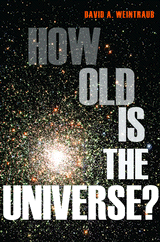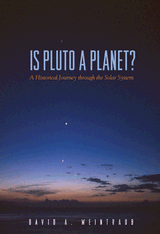RELIGION AND EXTRATERRESTRIAL LIFE: How Will We Deal With It? (Springer, 2014)

- In the twenty-first century, the debate about life on other worlds is quickly changing from the realm of speculation to the domain of hard science. Within a few years, as a consequence of the rapid discovery by astronomers of planets around other stars, astronomers very likely will have discovered clear evidence of life beyond the Earth. Such a discovery of extraterrestrial life will change everything.
- Knowing the answer as to whether humanity has company in the universe will trigger one of the greatest intellectual revolutions in history, not the least of which will be a challenge for at least some terrestrial religions. Which religions will handle the discovery of extraterrestrial life with ease and which will struggle to assimilate this new knowledge about our place in the universe?
- Some religions as currently practiced appear to only be viable on Earth. Other religions could be practiced on distant worlds but nevertheless identify both Earth as a place and humankind as a species of singular spiritual religious importance, while some religions could be practiced equally well anywhere in the universe by any sentient beings.
- Weintraub guides readers on an invigorating tour of the world’s most widely practiced religions. It reveals what, if anything, each religion has to say about the possibility that extraterrestrial life exists and how, or if, a particular religion would work on other planets in distant parts of the universe.
Table of contents
Part I: Discovering Extrasolar Planets.- Once Upon a Time.- Pluralism Through Western History.- The Discovery of the Century.- Detecting Exoplanets.- Are Angels Extraterrestrials?.
Part II: Major Religions of the World and Extraterrestrial Life.- Judaism.- Setting the Stage for Modern Christianity.- Roman Catholicism.- Orthodox Christianity.- The Church of England and the Anglican Communion.- Mainline Protestant Christianity.- Evangelical and Fundamentalist Christianity.- From Christian Roots.- Mormonism.- Islam.- Hinduism.- Buddhism.- Jainism.- Sikhism.- Bahá’í Faith.- Are We Ready?.
Appendix: The Exoplanets Revealed by the Kepler Mission Through 2013.
ebook and printed copy (paper only) available from Springer and Amazon:
How Old is the Universe? (Princeton University Press, 2011)

- Astronomers have determined that our universe is 13.7 billion years old. How exactly did they come to this precise conclusion? How Old Is the Universe? tells the incredible story of how astronomers solved one of the most compelling mysteries in science and, along the way, introduces readers to fundamental concepts and cutting-edge advances in modern astronomy.
- The age of our universe poses a deceptively simple question, and its answer carries profound implications for science, religion, and philosophy. David Weintraub traces the centuries-old quest by astronomers to fathom the secrets of the nighttime sky. Describing the achievements of the visionaries whose discoveries collectively unveiled a fundamental mystery, he shows how many independent lines of inquiry and much painstakingly gathered evidence, when fitted together like pieces in a cosmic puzzle, led to the long-sought answer. Astronomers don’t believe the universe is 13.7 billion years old–they know it. You will too after reading this book. By focusing on one of the most crucial questions about the universe and challenging readers to understand the answer, Weintraub familiarizes readers with the ideas and phenomena at the heart of modern astronomy, including red giants and white dwarfs, cepheid variable stars and supernovae, clusters of galaxies, gravitational lensing, dark matter, dark energy and the accelerating universe–and much more. Offering a unique historical approach to astronomy, How Old Is the Universe? sheds light on the inner workings of scientific inquiry and reveals how astronomers grapple with deep questions about the physical nature of our universe.
Honorable Mention for the 2011 PROSE Award in Cosmology & Astronomy, Association of American Publishers
One of Choice‘s Outstanding Academic Titles for 2011
available from PUP: How Old is the Universe? from PUP
or from amazon: How Old is the Universe? from amazon
also available in Spanish: La edad del universo
Is Pluto a Planet? (Princeton University Press, 2006)

- Is Pluto a Planet? tells the story of how the meaning of the word “planet” has changed from antiquity to the present day, as new objects in our solar system have been discovered. In lively, thoroughly accessible prose, David Weintraub provides the historical, philosophical, and astronomical background that allows us to decide for ourselves whether Pluto is indeed a planet.
- The number of possible planets has ranged widely over the centuries, from five to seventeen. This book makes sense of it all–from the ancient Greeks’ observation that some stars wander while others don’t; to Copernicus, who made Earth a planet but rejected the Sun and the Moon; to the discoveries of comets, Uranus, Ceres, the asteroid belt, Neptune, Pluto, centaurs, the Kuiper Belt and Eris, and extrasolar planets.
- Weaving the history of our thinking about planets and cosmology into a single, remarkable story, Is Pluto a Planet? is for all those who seek a fuller understanding of the science surrounding both Pluto and the provocative recent discoveries in our outer solar system.
available from PUP: Is Pluto Planet?
or from amazon: Is Pluto a Planet?
